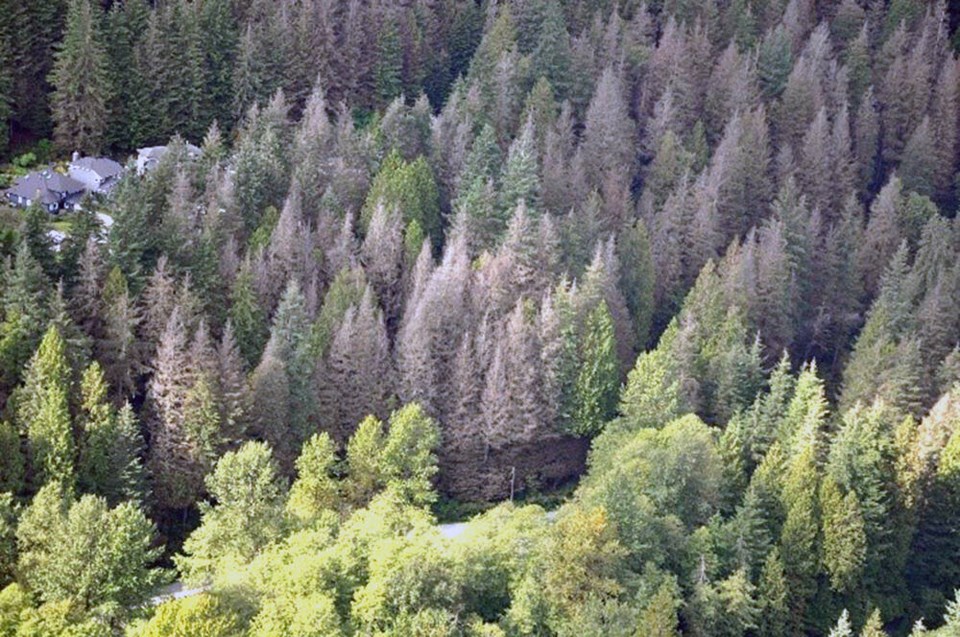The chainsaws and helicopters will be buzzing around the entrance to Lynn Headwaters Regional Park this week.
Metro Vancouver will be removing trees left dead or dying by an outbreak of Western hemlock looper moths before the trees become a threat to park visitors, infrastructure or nearby houses.
Western hemlock looper moths are a native species that go through a cyclical population boom every 11 to 15 years. The larvae, which look like inch worms, munch on the needles of and defoliate hemlock, Douglas fir and Western red cedar trees. The most recent outbreak of the moths has now peaked and local governments are assessing damage.
Metro has already removed about 100 high-risk trees near Lynn Headwaters entrance and more are expected to go this week.
While this work is being done, the entrance road to Lynn Headwaters will be closed. There will also be intermittent closures of the Baden Powell Trail and Varley Trail in the area.
“Work will take place Monday through Friday and the park will be open with limited parking on weekends,” a statement from Metro read. “Please follow the direction of staff and posted signage. More information will be available on Metro Vancouver’s website and social media.”
Metro Vancouver plans to restore and replant the affected areas with species that are more resilient to future looper moth outbreaks.




